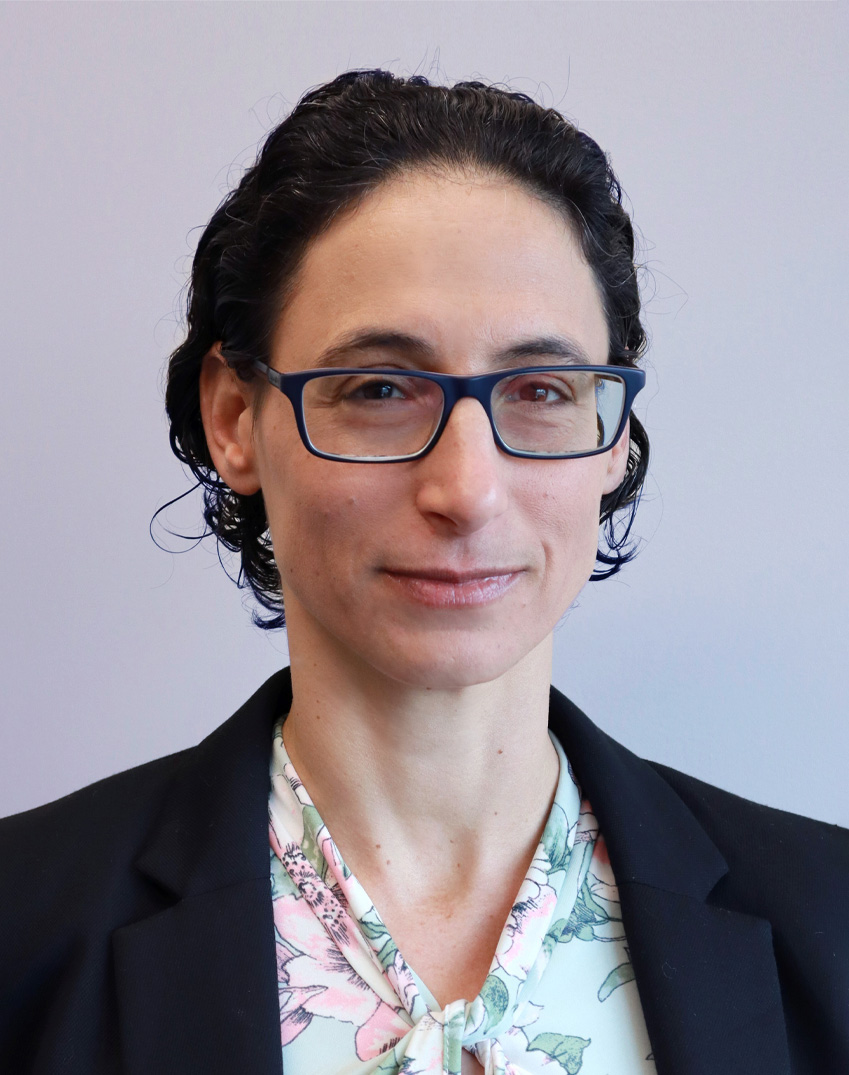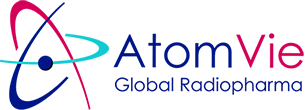
To celebrate International Women’s Day, AtomVie Global Radiopharma Inc. (AtomVie) would like to highlight the women in our organization who are building a strong foundation for the next generation of women in the pharmaceutical industry. This year, AtomVie’s first COO, Dodi Adar, was interviewed to shed some light on her professional and highly accomplished career journey, which is inspiring to many of her co-workers.
Dodi can be described as a confident, successful and trustworthy leader with significant achievements in her career. Read how she navigated her career starting as an engineer leading up to her leadership position at AtomVie.
What is your role as the COO of AtomVie?
Officially my role covers company operations that relate to manufacturing, development, and project management in addition to being accountable for the new facility build out and commissioning, which is being led by Costas Economou, Senior Director, Engineering and Head, Facility Team Lead at AtomVie. You can look at it as one foot in the present and one foot in the future. The day-to-day management of our operations is being led by Rezwan Ashique, VP, Operations at AtomVie, and I support him in streamlining the activities, adding structure, and developing the right culture and tools to support the expansion of AtomVie. I also lead many aspects of our transformation from CPDC to AtomVie, as a non-for-profit to a for-profit organization, to provide a growth mindset utilizing my experience.
As a woman in the pharmaceutical industry who started her career through pursuing engineering, what are the most important challenges you have overcome to fulfil your role?
This was a hard question to answer as I have faced many challenges, but to me, every challenge is an opportunity. I always knew that I wanted to lead a meaningful career with no doubts whatsoever.
I can think of a few challenges that I had to overcome earlier in my career. One of them was learning how not to be afraid of expressing myself even if it meant to disagree with colleagues or supervisors.
Another important challenge that took me a while to overcome and transformed my professional life was learning how to be myself and not trying to be somebody else. Overcoming this challenge was a big step up for me and a sigh of relief to fully feel comfortable with being myself.
The last important challenge that comes to mind was accepting that I am my worst enemy. This helped me hold myself accountable for any shortcomings in my career instead of blaming someone else.
Why did you choose to become an engineer? And how did you choose to pursue a master’s degree afterwards?
To be honest, engineering was never my top choice. I was interested in science and at a certain point I even considered becoming a physiotherapist. I tried to choose my program through a process of elimination and advice from people in the professions I was considering. Through that process, I ended up going to engineering school and pursued chemical engineering. After graduating from chemical engineering, I started working in the API (Active Pharmaceutical Ingredients) sector of the pharmaceutical industry. It was around this time that I realized pursuing a master’s degree in environmental engineering would be a good fit and benefit my career. It was a very natural choice for me as I was also interested in learning about ways to reduce and improve the carbon footprint.
How did you end up working in the pharmaceutical industry after entering engineering school?
Funny enough, when I was studying chemical engineering, I used to think that once I graduate, I want to work for Teva Pharmaceuticals! In my last year of undergraduate studies, there was an opportunity for me to work at Teva Pharmaceuticals part-time. After graduation, I naturally joined the engineering team at Teva Pharmaceuticals. Once I took the offer for a managerial position, a few years later, I became an addict and liked my job so much. I knew then that I am passionate about leadership roles and will thrive as a leader.
Is there anyone that inspires you in your career?
I think I was very lucky to come across very excellent role models who really influenced me to adopt a growth mindset. At least three of my direct and indirect managers really inspired me while supporting and guiding me through my career. They heavily challenged me by assigning tasks that sometimes seemed almost impossible. They believed in me and my potential despite my lack of hands-on experience at times. A very senior manager once told me that he knew that I didn’t have the right experience, but he was still going to put his money in me because he knew that I would make it. I felt obligated to stay committed under their guidance and it all worked out.
In your opinion, why is it important that more women take up leading positions in the pharmaceutical industry?
I think diversity always helps whether it is diversity in culture, gender, background, language etc. With diversity comes different points of views, perspectives, and approaches, which push the organization to work better. Diversity even changes the work environment and atmosphere by encouraging open-mindedness to different opinions. It is the same with women taking up more positions in the industry. We need more women in managerial positions for this purpose, on the shop floor, in the lab, and across the board.
On International Women’s Day, what is the most important piece of advice you would give to a woman thinking of starting a career in the pharmaceutical industry?
My advice would be to first start with defining your goals and figuring out what you want to achieve. It is not easy to set your goals when you start your career after graduating, but it will be very helpful to focus on your targets and priorities. Defining your goals will simplify your decision-making process.
Second, believe in yourself and the added value that you bring to an organization as an individual. Do not be shy and modest, say it out loud to yourself and others that you are great at what you do. It works like magic!
Third, is to do what you are passionate about and to find the right work environment that will make you feel happy and satisfied. If you are passionate about what you do daily, you will do great.
And last but not least, find yourself a mentor. A mentor who is more experienced and can really help you sort things out in your mind. Your mentor should help you think differently and share a more mature angle while encouraging you with positive feedback.
Have you faced any barriers in your career due to being a woman? If so, how did you overcome them?
Honestly, I do not think I ever faced any barriers in my career or got treated differently because of my gender. Nobody expected me to do less or treated me unequally because I am a woman. I got promoted three times when I was expecting a child, but I also never took a long maternity leave. However, it was my own choice to take shorter maternity leaves. I felt very responsible to get back to work because of my employees and duties. I was very happy to go back after fourteen weeks. I always knew that if I became a mother, I would still want to have the same career I always wanted, and that is what I was set to do.
How do you find and improve your work-life balance as a COO and a mother of three? And what is your advice to aspiring women with professional careers who would like to start a family?
I do not think it is about being a woman, it is all about being a person. To be honest, I think maintaining a work-life balance will be hard regardless of whether you are a female or male leader and parent. A piece of advice would be to set your priorities and boundaries from the start. Try to feel whole and content with yourself and your goals and live according to what you want. Using this mindset, you will not struggle with your work-life balance because you will naturally do things that you enjoy.
It is also important to remember that challenging yourself and struggling with finding a work-life balance will make you stronger. I challenged myself a lot and lived a hectic life, but it only made me smarter and stronger and prepared me for the future. There is always a solution, for example, my parents and my in-laws helped us so much with the kids. Once you get through the struggles and find the balance you are looking for, life becomes easier because of your experiences. I am now happy at work because I do as much work as I need to and then go home and spend more time with my family. I have actually been reading this inspiring book to my daughter called ‘Goodnight stories For Rebel Girls’ by Elena Favilli and Francesca Cavallo. It introduces you to one hundred remarkable women who broke the rules and led extraordinary lives and put our struggles in proportion.
Do you think there is a stereotype attached to female leaders working in the life sciences industry?
I have not experienced a gender-based stereotype, but I believe that there may be such stereotypes in the industry. In my personal experience, I was never treated differently, and I know many female leaders, but I have never heard anyone say, “that’s because she is a woman”.
At your level, what actions do you take to work towards more gender equity?
I think we can have more female leaders at AtomVie and I would be happy to see more women in our leadership team and our mid-managerial level. I think we are in a good position when it comes to gender equality and representing women at AtomVie.
If you could have dinner with one to three inspirational women, dead or alive, who would they be and why?
I would choose to have dinner with my mom, she has always inspired me and has been a role model for me. Growing up, my mom was a career woman when it was so rare for women to lead a career. She is so smart and strong, so I always thought that I wanted to be like her.
Ruth Bader Ginsburg is also a woman I would like to have dinner with, she is the most inspiring individual and she fought for gender equality at a time that women faced many discriminations.
At AtomVie, we value diversity and inclusion of all kinds. This year’s International Women’s Day theme, embracing equity, ties in perfectly with our values as an organization as embracing equity means creating an inclusive world. AtomVie is proud to honor all the women across the board who have undoubtedly been key towards its success and embraces equity to promote diversity in all forms, including gender as encouraged by Dodi on this day and beyond.

